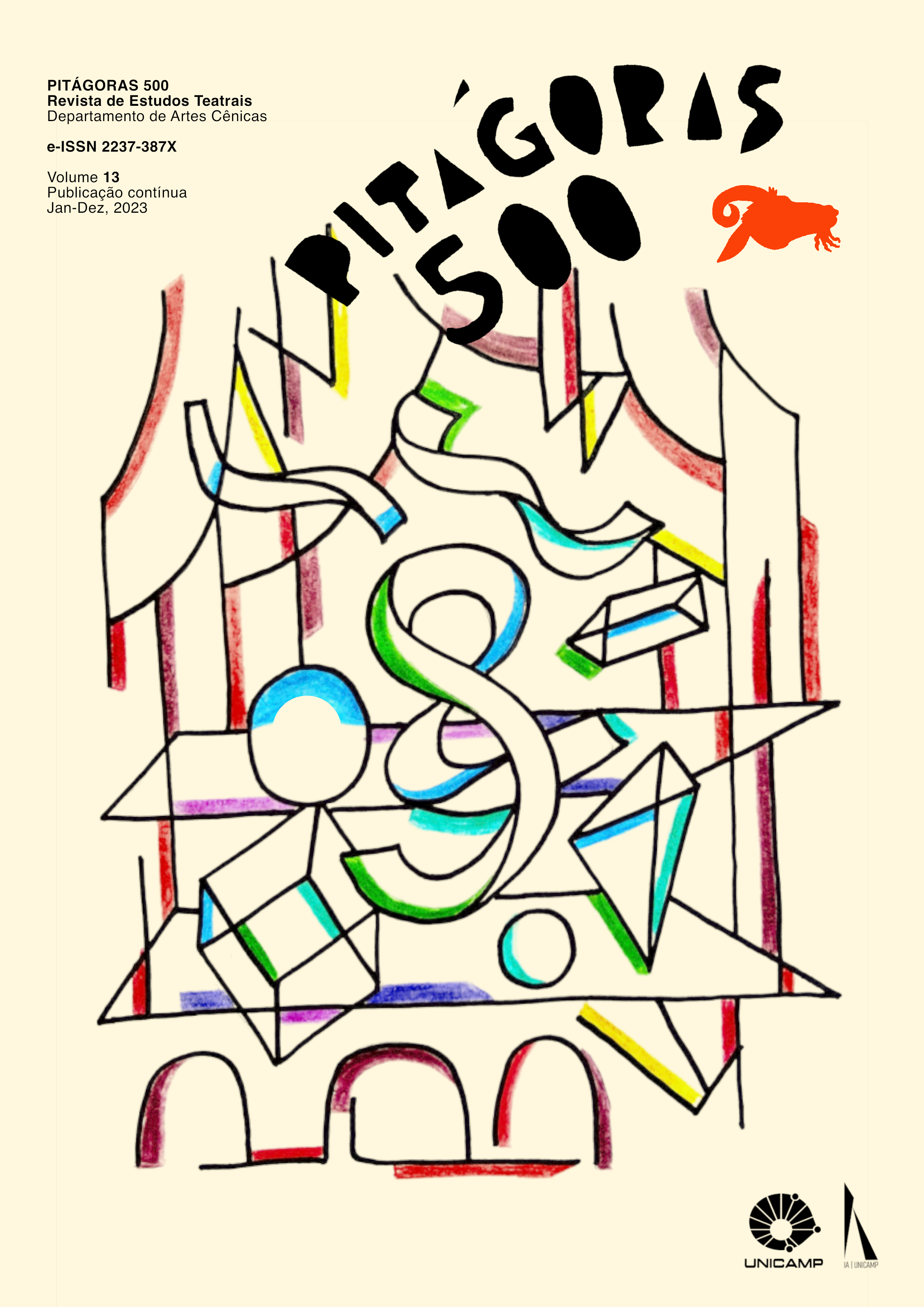Abstract
In this article, I present the pedagogy that guides my work as an artist teacher PedaBoba. The pedagogy of nonsense, which originates from the clown pedagogy, the basis of the “non-serious” activities that I have been carrying out since I joined Educandário São João Batista and the methodology of the Generating Themes of Paulo Freire's libertarian and dialogic pedagogy. I finish by reporting the experiences of this PedaBoba in the times of COVID-19 with students, who already spend their whole lives confined with the limitations imposed by society and who, in times of pandemic, without even being able to go to school, their only form of socialization, what was left for them were activities sent online or meetings via video call.
References
BARBOSA, Ana Amália Tavares Bastos. Além do Corpo: uma experiência em arte/educação. Tese (Doutorado em Artes Plásticas) Escola de Comunicação e Artes. Universidade de São Paulo, 2012.
BERSELLI, Marcia. Abordagens à cena inclusiva: princípios norteadores para uma prática cênica acessível. Tese (Doutorado em Artes Cênicas) Instituto de Artes. Universidade Federal do Rio Grande do Sul, 2019.
CZÉKUS FLÓREZ, Laili von. Pedagogia da bobagem: uma oficina de palhaço para adultos com deficiência intelectual. 2012. 153 f. Dissertação (Mestrado em Artes Cênicas) – Escola de Teatro, Universidade Federal da Bahia, Salvador, 2012.
COSTA, ERIKA. Disponível em: https://www.campograndenews.com.br/lado-b/comportamento-23-08-2011-08/a-escola-como-a-gente-conheceu-nao-vai-mais-existir-pos-quarentena. Acesso em: 13 abr. 2023.
DE CASTRO, Alice Viveiro. O elogio da bobagem: palhaços no Brasil e no mundo. Família Bastos Editora, 2005.
FREIRE, Paulo. Pedagogia do Oprimido, 69ª ed. Rio de Janeiro: Paz e Terra, 2019.
FREIRE, Paulo. Conscientização. Teoria e Prática da Libertação. Uma Introdução ao Pensamento de Paulo Freire. (tradução de Kátia de Mello e Silva; revisão técnica de Benedito Eliseu Leite Cintra) - 3ª ed. - São Paulo: Moraes, 1980.
FREIRE, Paulo. A Importância do Ato de Ler: em três artigos que se completam. 41ª ed. São Paulo: Cortez, 2001.
LECOQ, Jacques, CARASSO, Jean-Gabriel e LALLIAS, Jean-Claude. The Moving Body – Teaching Creative Theatre. New York: Ed. Routledge, 2001.
LULKIN, Sérgio Andrés. A Potência do humor e do riso na escola. Campinas: Alegrar, V.4, p. 1-8, 2007.
LULKIN, Sérgio Andrés; FIETZ, Helena Moura. A multiplicidade do cuidado na experiência da deficiência. Revista Anthropológicas, v. 29, n. 2, p. 114-141, 2018.
NEVES, Libéria Rodrigues. Arte e conhecimento: uma abordagem para o teatro na educação. Revista Educação, Artes e Inclusão, v. 15, n. 2, p. 78-98, 2019.
SANTOS, Boaventura de Sousa. A Cruel Pedagogia do Vírus. São Paulo: Boitempo Editorial, 2020.
SPOLIN, Viola. Jogos Teatrais: O fichário de Viola Spolin. São Paulo: Perspectiva, 2006

This work is licensed under a Creative Commons Attribution-NonCommercial 4.0 International License.
Copyright (c) 2023 Elizabeth Pinto, Suzane Weber da Silva


